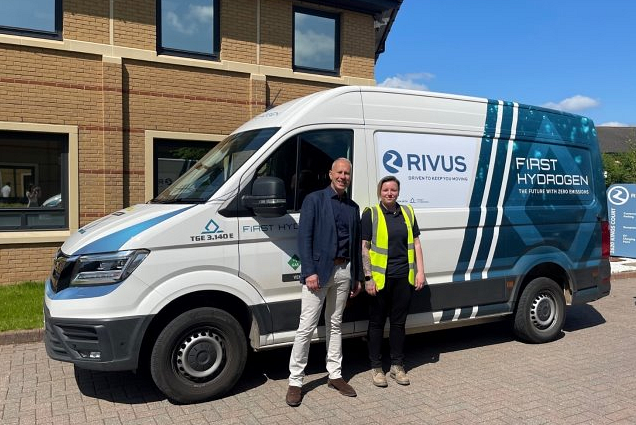
Recently, First Hydrogen announced that Rivus, an award-winning fleet management provider, has issued a positive report on its hydrogen fuel cell powered vehicles (FCEVs). The report highlights that First Hydrogen’s FCEVs outperform pure electric vehicles in terms of vehicle efficiency under all load conditions. And the report goes on to say that the FCEV has an unrivaled range and that hydrogen refueling is very fast, under five minutes.
The report states that First Hydrogen’s FCEV outperforms electric vehicles (EVs) in terms of range. Modern electric light commercial vehicles (eLCVs) have a range of up to 150 miles. And First Hydrogen’s FCEV can easily reach twice that 150 miles. Compared to the eLCV, the company’s FCEV’s performance is not significantly affected by speed or payload. It performs well over different load cycles, with range drops limited to about 10 percent.
First Hydrogen’s FCEV
First Hydrogen’s FCEV has been undergoing trials with Rivus for more than four weeks. During that time, Rivus engineers covered more than 700 miles (1,125 kilometers) in testing. The tests were conducted on different tracks and provided data on how the car performed in different conditions. These included in-city trips, out-of-city trips, i.e. trips in city centers and on highways. As well as mixed trips, which included a mix of city center low-speed road, highway and freeway trips.Rivus tested the van unladen and fully loaded, with the results reaching 90% of the van’s maximum load capacity. This again reflects the van’s suitability for multi-scenario applications.
Gemma Horne, Rivus’ Warranty Director, took part in the test and described the overall experience as ‘fantastic’. She continued: “The main advantage of First Hydrogen’s hydrogen-powered cars is that the refueling time is faster than battery-powered cars. And of course, unlike internal combustion engines, hydrogen-fueled vehicles produce no emissions.”
Steve Gill, CEO of First Hydrogen Automotive, said: “We are delighted that Rivus has been able to demonstrate that this technology can be a viable alternative for many fleets. The test also showed that the vehicle traveled more than 500 kilometers on a single tank of fuel. This exceeded initial expectations of the vehicle’s actual performance. We have always believed that our vehicles would benefit fleets and the first trial proved this.”